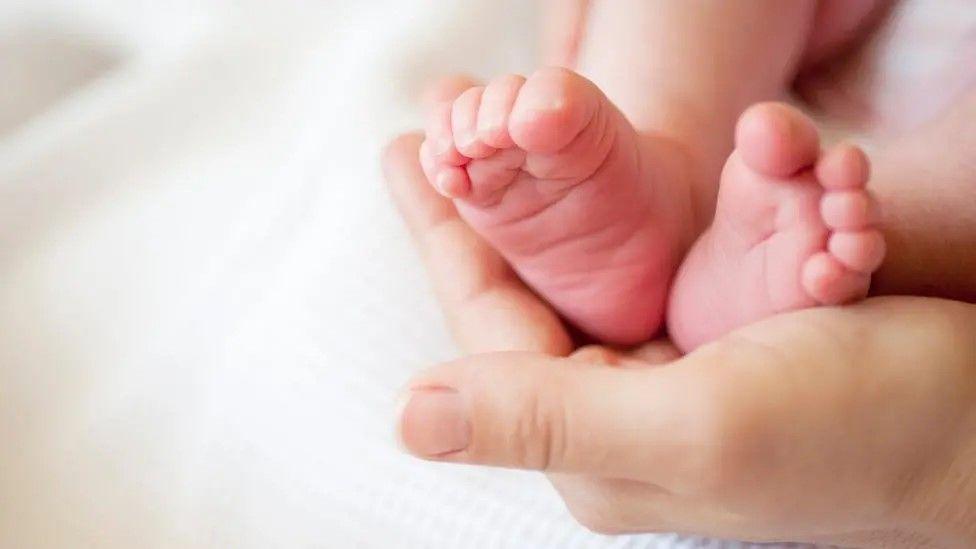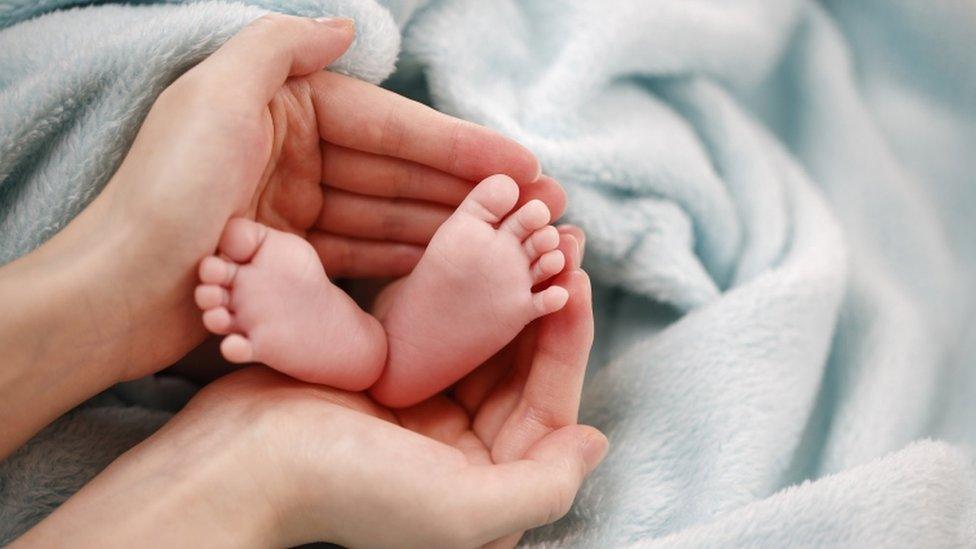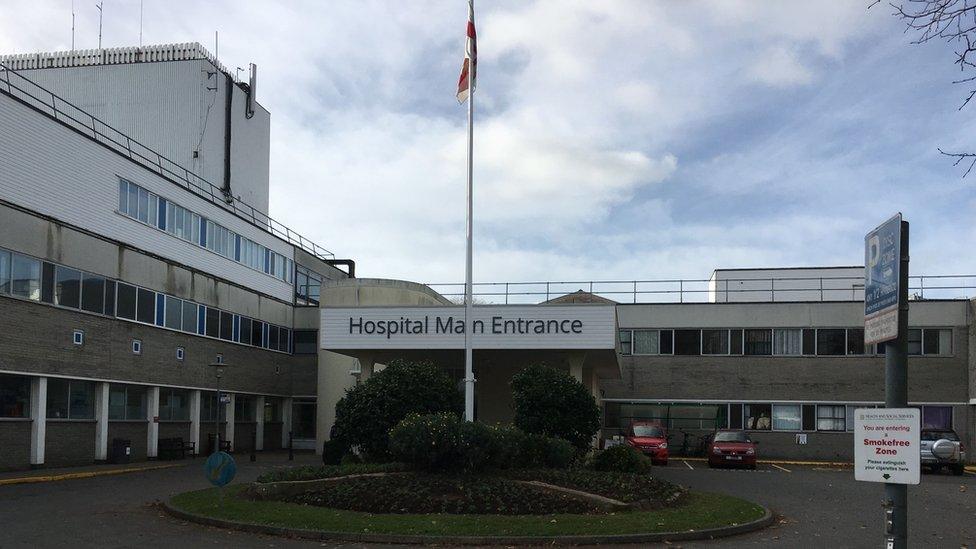Maternity services need 'continued investment'

The Bailiwick of Guernsey sees about 500 births annually
- Published
Guernsey's maternity services are facing fresh challenges as more islanders give birth later in life, experts say.
In a new report, The Royal College of Midwives (RCM) warns the changing demographic is likely to add "complexity to maternity services" in the bailiwick.
The report found mothers-to-be were twice as likely to be aged 30 or older and overweight or obese "compared to just a few years ago".
Guernsey's government said there was a "strong commitment" by the States to address demands on the service.
'Right skills mix'
On the findings Julie Richards, RCM director for Wales and the Channel Islands, said: “More women are choosing to start a family later, including in Guernsey where the age profile of women in pregnancy has increased.
"This, alongside raised body mass index (BMI) among increasing numbers of women, brings with it added complexity during pregnancy.
"Making sure that the island’s maternity service has the right skills mix, and the right number of midwives, to adapt to these changes is imperative.
"The RCM wants to see continued commitment from the Bailiwick to invest in maternity services in Guernsey to meet these needs.”
'Leave the island'
The RCM said the number of women who used the service had remained stable - with on average 500 births per year.
It said challenges also included logistical considerations with Guernsey's continued provision for pregnant women living on Alderney, where there was no on-island delivery services.
While the RCM found the midwifery workforce had a good age range and skills balance, its report also called for improvements to be made for better retention of staff.
It urged the States of Guernsey to do more "to understand the reasons why maternity staff sometimes choose to leave the island".
'Accommodation costs'
Guernsey currently offers rent allowances and bonuses to midwives in the first four years of employment.
However, three-quarters of those who left the workforce in the five years to March 2024 did so after working as a midwife locally for five years or less, the RCM found.
It added, accommodation costs were said to be a possible barrier to living and working on the island long-term.
Alex Hawkins-Drew, head of public health for women and children's services, said in a statement there would "continue to be demands on the service due to the national increase in health-related complexities that some service users live with".
"However, there is a strong local commitment, embedded in States of Guernsey strategies, to address this.
"I am confident that with the ongoing support of all those working in maternity services, we will continue to support individuals to take steps to reduce personal health risks, which will benefit not only them but also their family."
Follow BBC Guernsey on X, external and Facebook, external. Send your story ideas to channel.islands@bbc.co.uk, external.
- Published4 March 2022

- Published17 September 2019
